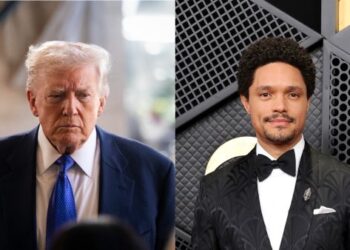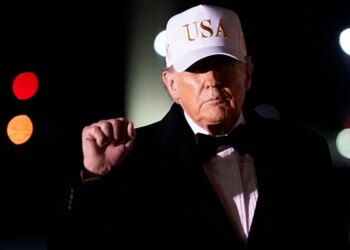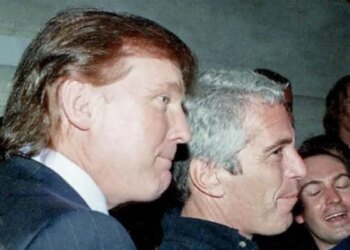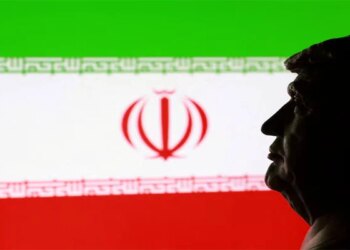Select Language:
- Trump presents a video and articles claiming white individuals are being harmed.
- Ramaphosa remains composed, stating that the majority of victims in South Africa are Black.
- Trump interjects, insisting that the farmers affected are not Black.
WASHINGTON: On Wednesday, US President Donald Trump confronted South African President Cyril Ramaphosa at the White House, accusing white individuals of facing mass murders and land confiscations. This exchange resembled his earlier confrontation with Ukraine’s Volodymyr Zelenskyy.
The South African government refutes Trump’s claims that white people are disproportionately affected by crime. While the country does experience high murder rates, the majority of victims are Black.
Ramaphosa initially came to the meeting to discuss trade relations and key minerals, and the atmosphere started off friendly as he and Trump shared golf-related comments. Notable South African golfers Ernie Els and Retief Goosen were part of Ramaphosa’s delegation.
However, the tone shifted during the televised Oval Office meeting when Trump displayed a video and various printed articles purportedly supporting his unsubstantiated assertions of persecution against white South Africans.
“People are fleeing South Africa for their own safety. Their land is being taken, and in many instances, they’re being killed,” Trump stated, reiterating his claims.
South Africa, which suffered from extensive discrimination against Black citizens throughout colonialism and apartheid before becoming a multi-party democracy in 1994 under Nelson Mandela, firmly denies these allegations.
A newly implemented land reform law, designed to remedy apartheid injustices, allows for land expropriation without compensation for public interest purposes, such as when land is unused. No such expropriations have occurred, and any order is subject to legal challenges.
The video shown by Trump showcased white crosses that he claimed were grave markers for thousands of white individuals, alongside opposition leaders making provocative statements. Trump suggested that Julius Malema, one such leader, should be arrested.
Ramaphosa maintained a neutral demeanor as the video played, occasionally turning to see it and expressing that he hadn’t viewed it previously and wanted to determine its origin.
Trump continued by displaying printed articles that he claimed documented the deaths of white South Africans, exclaiming “death, death” as he leafed through them.
In response, Ramaphosa acknowledged crime in South Africa, pointing out that the majority of victims are Black. Trump interrupted, asserting, “The farmers are not Black.”
Ramaphosa replied, “These are concerns we are open to discussing with you,” remaining composed throughout the exchange.
Recently, Trump has criticized the land reform measures and South Africa’s legal case against Israel concerning genocide.
He has canceled aid, expelled South Africa’s ambassador, and offered refuge to white Afrikaners, whose claims of racial discrimination Pretoria considers unfounded.
The United States is South Africa’s second-largest trading partner after China. However, South Africa is subject to a 30% tariff under Trump’s now-suspended “Liberation Day” regime, prompting Ramaphosa to push for a trade agreement and business opportunities.
Later in the meeting, South African business mogul Johann Rupert, who was part of Ramaphosa’s group, supported the president’s statements, noting that crime affects everyone and many Black lives are also lost.
He nodded toward Elon Musk, Trump’s billionaire ally from South Africa, acknowledging the need for Musk’s Starlink communications systems in police stations across the country to help combat crime.







